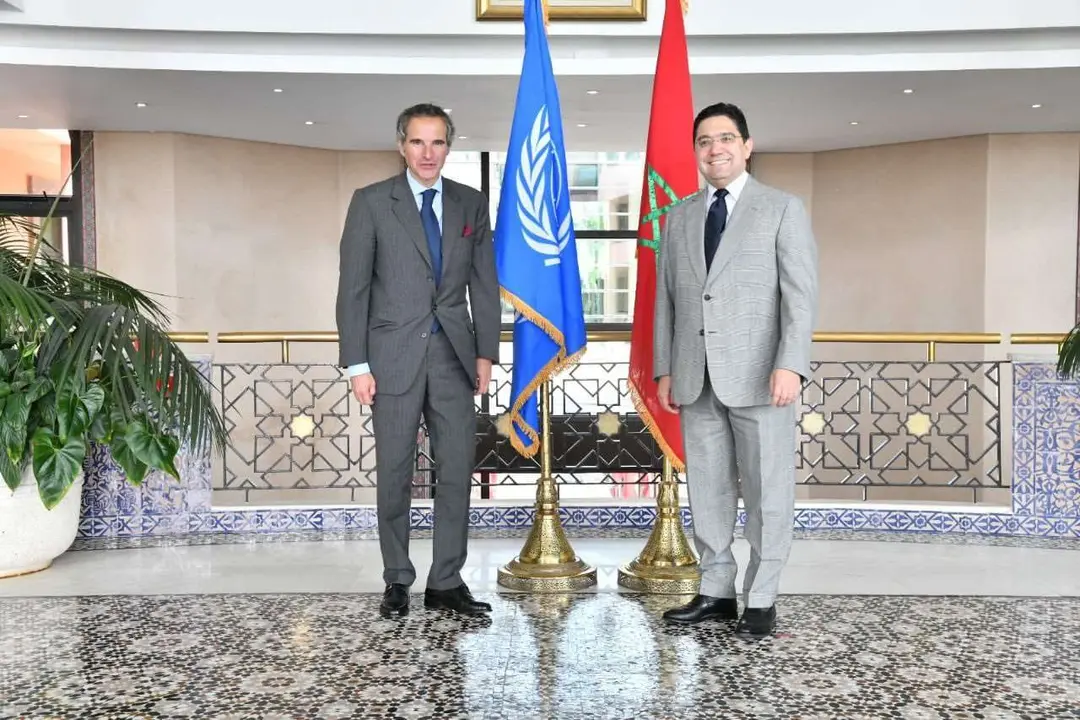Morocco and the IAEA will fight cancer and epidemics through a new agreement

Morocco announces its commitment to people suffering from cancer. This disease, still suffered by thousands of people every day and recognised as one of the most dreaded, has become the main objective of the Alawi country. The Kingdom has just announced a new partnership with the IAEA (International Atomic Energy Agency), which will also seek to combat pandemics in a new cooperation agreement.
According to the Moroccan state news agency MAPNews, the UN agency has signed an agreement with the Moroccan Ministry of Health and Social Protection. Initially, the two partners will begin to reinforce each other's work in the fight against cancer. In addition, they will also take up the common challenge of combating pandemics in the wake of recent global developments with COVID-19. In particular, they will focus on zoonoses, diseases that are found in animals and then begin to be transmitted among humans, such as coronavirus, Ebola or Zika

The agreement will be established shortly and both the IAEA and Morocco will work through the "Rays of Hope" initiative. This is a very recent programme, launched after the last African Union summit in Addis Ababa. This effort by the African organisation aims to improve access to cancer care (radiotherapy, chemotherapy, among other treatments) for citizens of countries on the continent with the greatest difficulty in accessing a good health system. Official data confirm that more than 70% of Africa does not have the necessary help to alleviate the disease.
These low-income nations receive only 5% to cover the costs of cancer treatment. The IAEA, with more than six decades of experience working to improve health systems based on nuclear medicine (radiotherapy, radiology, etc.), has been helping countries like those in Africa for years. Thanks to this, every day more and more people can have access to the therapies needed to cure the disease.
The alliance with Morocco is one of the attempts to ensure that "Rays of Hope" reaches more people. The organisation is currently in the process of establishing different types of partnerships with governments, institutions and public and private companies in order to receive more funding to provide more health services.
"Morocco is a strong supporter of promoting nuclear science in Africa and a major player in access to cancer care and responding to zoonotic disease outbreaks on the continent," said Rafael Mariano Grossi, IAEA director general.
" Rays of Hope" creates all kinds of projects based on sustainability. Thus, they offer security to patients who receive quality medical care through a qualified team. The initiative thus contributes to the goals imposed by the 2030 Agenda and Sustainable Development Goal 3 (health and well-being). According to its own website, the IAEA aims to "reduce premature mortality from non-communicable diseases by one third".

The IAEA says that in 2020 alone, there were more than 19 million new cases and ten million deaths from cancer worldwide. And despite all efforts, people's different lifestyles and pollution will continue to increase the global burden. The organisation says that in 20 years' time, on current figures, there will be more than 30 million cancer sufferers and 16 million deaths from the disease.
In Morocco, according to the Moroccan daily Rue20, the Ministry of Health and Social Protection revealed in March that more than 50,000 cases of cancer are estimated to occur annually in the Alawi kingdom. According to MP Naima Al-Fatahawi, the most common are breast cancer and cervical cancer in women, with rates of 35.8% and 11.2% respectively. In men, the most common cancers are lung, prostate and lymphoid cancer, with 22%, 12.6% and 6.7% respectively.









